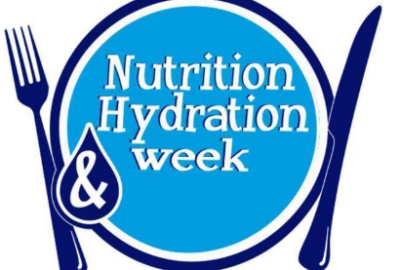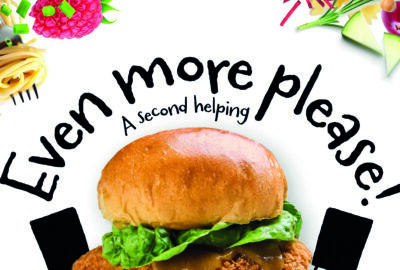Marianne Lumb has experienced many different sides of the professional catering world, from Michelin-starred restaurants, owning her own restaurant, teaching, consultancy and private chef work. She has also enjoyed the limelight, appearing on Great British Menu and MasterChef the Professionals.
Your childhood and subsequent summer jobs clearly instilled a love of food from an early age. Are today’s children losing sight of where their food comes from, and how can we remedy this?
Yes, I was lucky in that we always had nicely cooked food at home. Using meat from the family butchers’ shop and lots of fresh vegetables. I also absolutely treasure the recipes I learnt at school and I actually still use them sometimes at home. It has made me sad that cookery isn’t on the curriculum anymore… however I hope the coronavirus might actually help remedy this; I believe we will need to rationalise, to be a lot more sensible with eating and cooking, and the way we live, generally.
You were flying the flag for Leicestershire in the 2018 series of Great British Menu. How is the culinary scene in that part of the country?
The culinary scene here is very different to London. Restaurants don’t open and close at the same rapid rate that they do there. There are some excellent places, for all sorts of things. For example, there’s obviously Sat Bains, and congratulations to Alchemilla for winning another Michelin Star for Nottingham. In Rutland, Hambleton Hall has delivered delight for decades, and Leicestershire is home to the splendid John’s House in Mountsorrel. The area is home to culinary treasures from Stilton cheese, to the Melton Mowbray pork pie, and so I feel that our heritage is being nurtured.
You have blogged about the highs and lows of being a private chef. How do you deal with the workload and pressure?
Private chef can be a demanding role, especially full-time, when it can be as relentless as a restaurant, but with less control of the timetable! I am now always clear to agree what is reasonable in advance, and to make sure I have one quiet day at least each week. That said, with the right client and the right team, it can offer all the delights of the kitchen, and introduce a new and interesting place. I am often lucky enough to travel with my partner too, and this makes things much more enjoyable.
Is it more difficult cooking for celebrities and the super-rich?
Above all, people are people, and clients vary. Among celebrities and the super-rich, my favourite clients so far have often been creative, for example musicians and people who work for themselves. They understand the creative process, and so tend to be the most relaxed. Importantly, there is nothing nicer than cooking for clients who really love food.
How did you enjoy the experience of running your own restaurant?
It was an amazing experience. There’s a huge satisfaction in having your own name ‘above the door’, and in starting and growing your own business for yourself, and for your team. I worked very hard, learnt a lot and had marvellous fun too. My network from the restaurant is still very valuable. On the other hand, the dedication required was absolute, almost all of the time, and almost every day. I let my personal life suffer, and neglected my health and my out of town friends. Lessons learned, I’ll always leave time for an odd walk, and a life outside. That said, I am still looking at executive chef opportunities, and have this year been granted the planning permission for a small restaurant near home in Leicestershire. I think running my own restaurant will always be in the mix.
How important is winning awards?
Awards are a double-edged sword. Restaurant Marianne did extremely well, and each accolade was a huge satisfaction and spur. I still remember clearly the immediate and happy redoubling of enthusiasm on the team after we won Harden’s award for Top Gastronomic Experience in London in 2017. What can be less helpful is looking to awards to tell you what to do. This is impossible; but so often it lies at the heart of “why didn’t so and so get a star” conversations.
After moving on from ‘Marianne’, you travelled extensively. How did this influence your cooking?
Travelling, and cooking while travelling, has been a big influence for me. When I am in a new country, county or continent, I always make sure to find the best market I can, and to learn about the history and culture of the food there from the best sources I can find. I think it’s a big part of the cultural and historical story, an education that helps to inform one’s perspective and to enhance one’s cooking. Some starting points are obvious, for example for pasta go to Italy, but I think there are good cooks and experts, illuminating their regions, all over the world, and we should be finding them and learning from them. Whether an ancient piece of lore, a technique or a completely new ingredient or recipe, I still learn from housekeepers, fishermen, traders and farmers, as well as books and cooks. I hope I will forever!
Will we be seeing you entering more TV cooking competitions?
Yes, I hope so! I really enjoyed both Professional MasterChef in 2008 and Great British Menu in 2018. It’s a great way to share delight in the dishes with a large audience, and it’s a pleasure and an education to meet the other chefs too. The competitive element drives the format, excitement for the audience, and the adrenalin of the contestants, but the danger can be in fostering a judgmental attitude to food, and ultimately of prizing appearance and elaboration over taste. I think there’s room for a new take on the format, and I’d love to be involved.
How important are good knife skills and where are chefs generally lacking in this area?
Good knife skills are very important. Mine are still improving after all these years. For me, the most important thing is finding a knife that fits your hand best so it is very important to pick it up and hold it before you invest. Also, keeping the knife sharp is often overlooked. Sharpen it gently on a steel, little and often. Above all, practice makes perfect, and I can recommend a very good book! [’Kitchen Knife Skills’ by Marianne Lumb].
What advice can you offer to the next generation of female chefs?
Historically kitchens have often been quite chauvinist places, some still are but things are improving. When you’re learning, find one that isn’t. It usually depends on the senior team. I found Gravetye Manor and was very happy there. Beyond that my advice is the same for girls as for boys: Work very hard, do your absolute best in everything and the skills and experience will come. Recognition comes from this, and not being too shy about your abilities – put yourself forward, and have a go! The incredible Anthony Bourdain went further, he signed his book for me when I met him in Sydney in 2001: “Kick Ass and Take Names!”
And now for three questions that we ask all of our Leading Lights…
- What are your three kitchen secrets?
a. A mandolene – these are just brilliant at achieving fine, consistent cuts. Don’t be fooled by the expensive versions, basic but with a good blade is fine. Above all though, take care and concentrate. Respect that sharp blade!
b. A timer – Use it whenever you can; if I had a penny for every time I have been saved by the bell…
c. Teamwork – If there is one thing I have learnt over the years, if you are cooking in a good, energised team, the sky is the limit! - What is your favourite ingredient and why? Butter. I love the flavour of butter and what you can do with it, both sweet and savoury.
- Please could you share your favourite recipe, along with your reasons for choosing it? This is one of my favourite game recipes. I grew up with quite overpowering game dishes, so in reaction to that, this is light, refreshing and elegant, everything a game dish should be.



